
Our first trip on a small plane into the African bush was to the Moremi Crossing tent camp in the Okavango Delta.
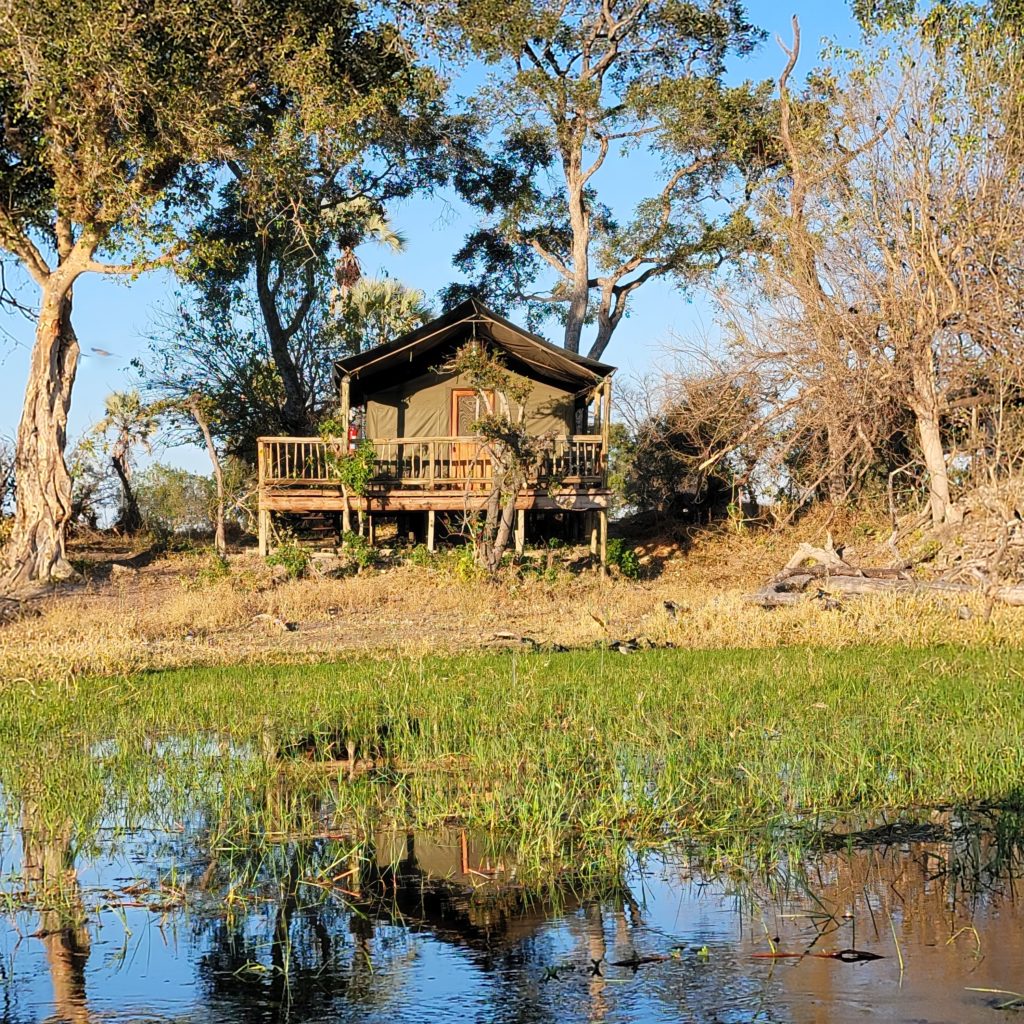
Although the rooms are literally tents, they’re very fancy tents with running water and bath facilities. The shower is outdoors in the back, and the front porch is a lovely place to sit and watch the animals in the river out front.
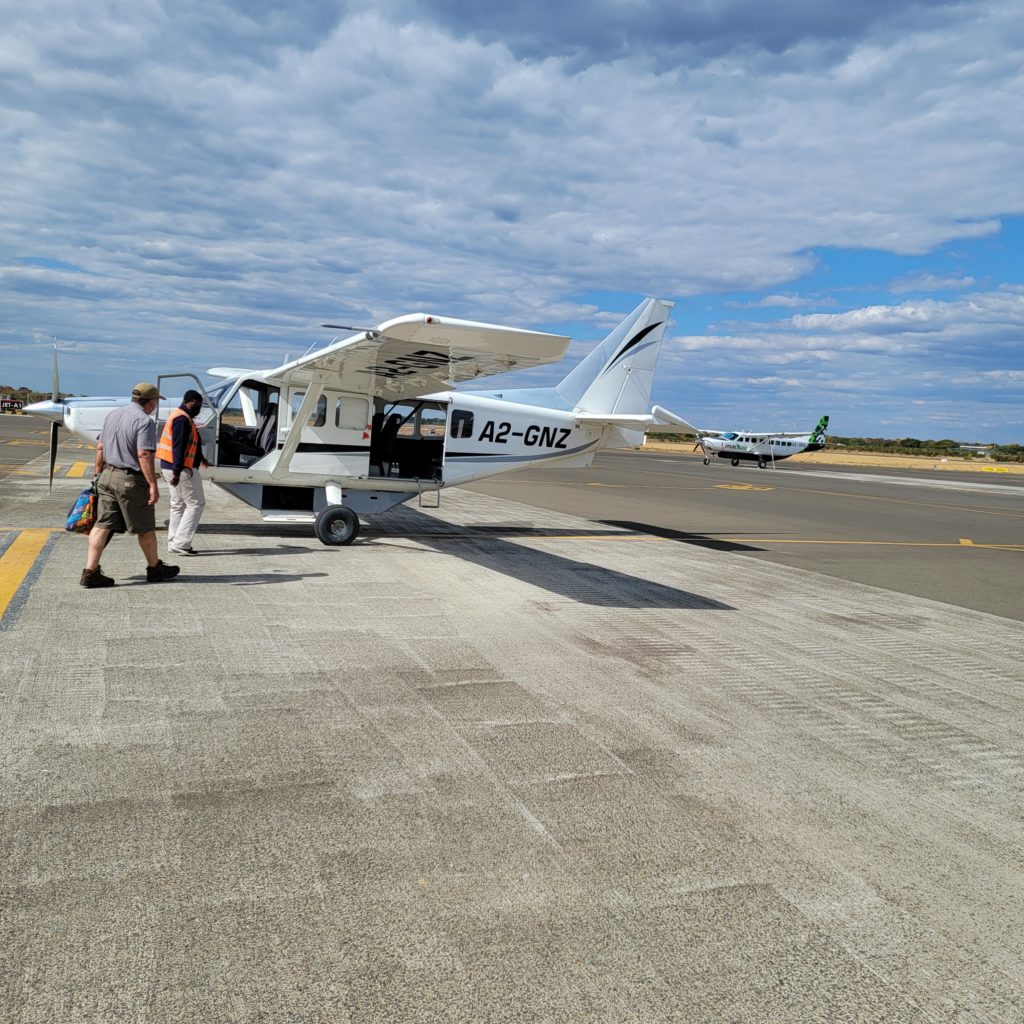
We flew a small regional airline called Moremi Air from Kasane into the Delta. Literally, the pilot came and fetched us from the departure area and walked us out to the plane. He landed on a tiny dirt airstrip an hour and a half later.
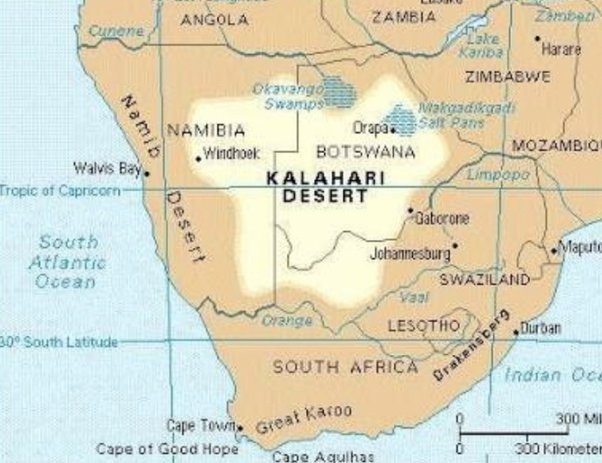
In the big picture, the Kalahari Desert covers much of Botswana and parts of Namibia and South Africa, with 350,000 square miles of desert. Kalahari is derived from the Tswana word Kgala, meaning “the great thirst”, or Kgalagadi, meaning “a waterless place”; the Kalahari has vast areas covered by red sand without any permanent surface water.
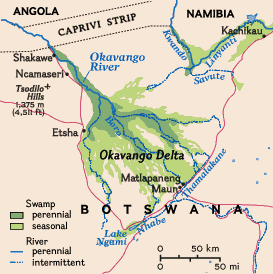
The only permanent river in the Kalahari is the Okavango, which flows into a delta in the northwest, forming marshes that are rich in wildlife. It is the fourth-longest river system in southern Africa, running southeastward for 1,000 miles. It begins at an elevation of 4,300 feet in the sandy highlands of Angola. Farther south, it forms part of the border between Angola and Namibia, and then flows into Botswana. The Okavango does not have an outlet to the sea. Instead, it discharges into the Okavango Delta or Okavango Alluvial Fan, in a basin in the Kalahari Desert.

Around this area are tent camps for tourists to visit the Delta and see the amazing sights and view the wildlife that call this area home. Moremi Crossing has 16 tents, and is part of a group of eleven camps owned by Kwando Safaris. From their website: “Moremi Crossing is a new style safari camp combining luxury with simplicity. This is a 100% eco-friendly development featuring the latest in solar and waste disposal technology.”
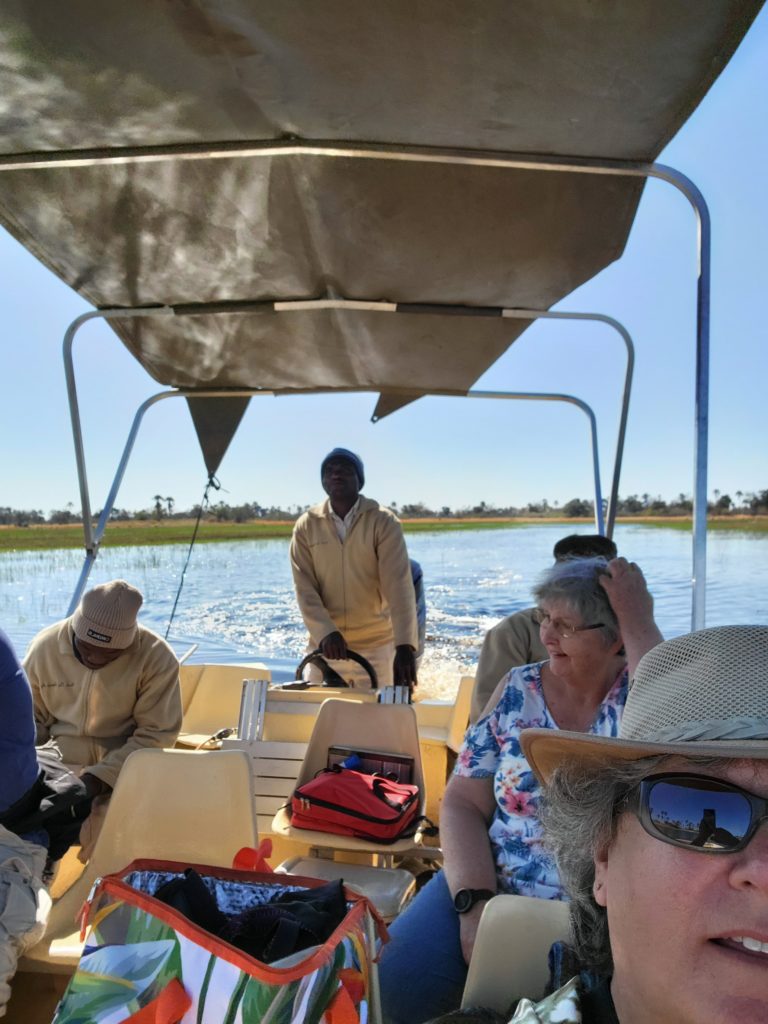
Joining us in our meals and activities at Moremi Crossing was a lovely couple from South Africa, who are avid birders with extensive knowledge of both the local flora and fauna. We learned so much from them and our guide about all that we were seeing that was so very new to us. We took three game drives (including after dark which was new for us), one boat drive, and a two hour safari walk during our stay there. Our guide named Action was always taking good care to make sure our safety was the highest priority, and we’re surely grateful for that. We were not allowed out of our tent after sundown without a guide escorting us to and from the main camp area.
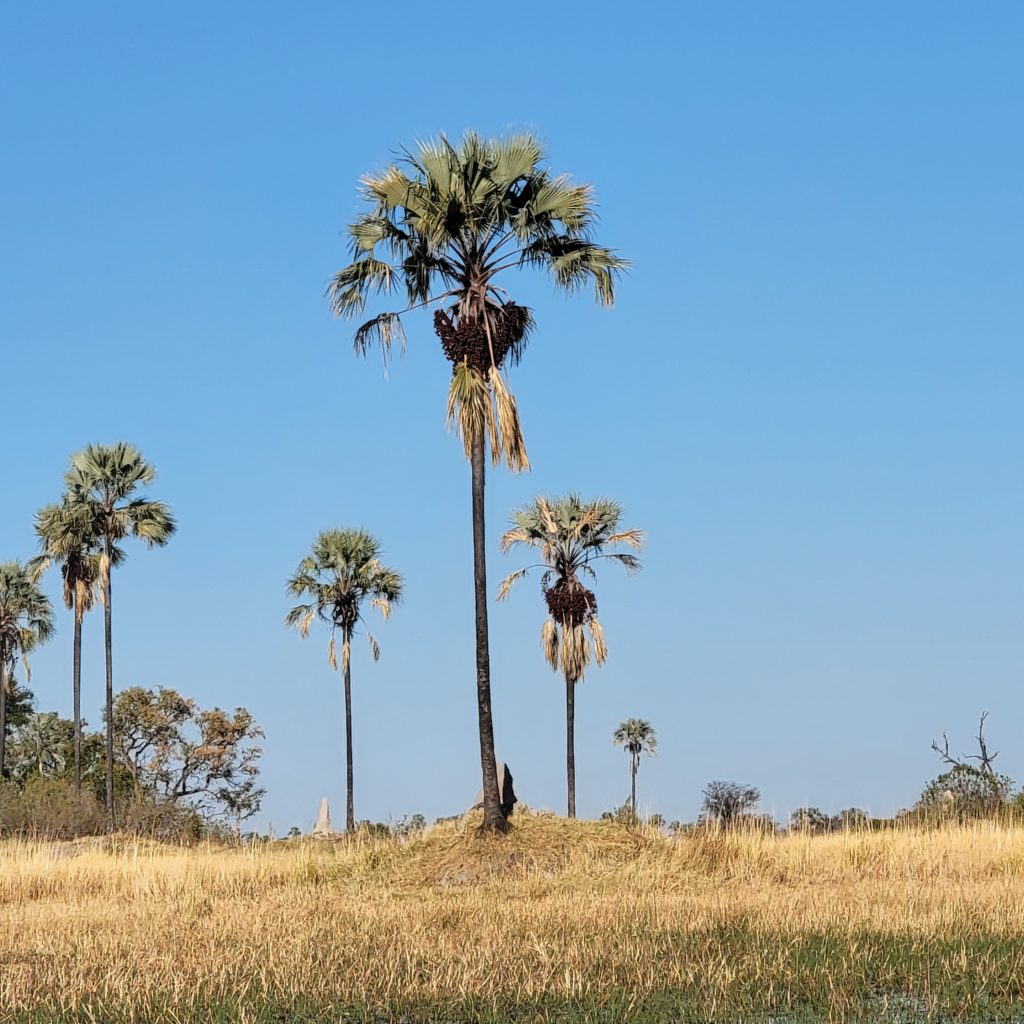
Memorable events from this trip include the first night when we went back to the tent and there was an elephant behind us shaking a palm tree trying to get the nuts to fall to the ground. It was very intense listening to it, but the elephant finally gave up and walked around the front of the tent and away from camp, which also was extraordinarily noisy.
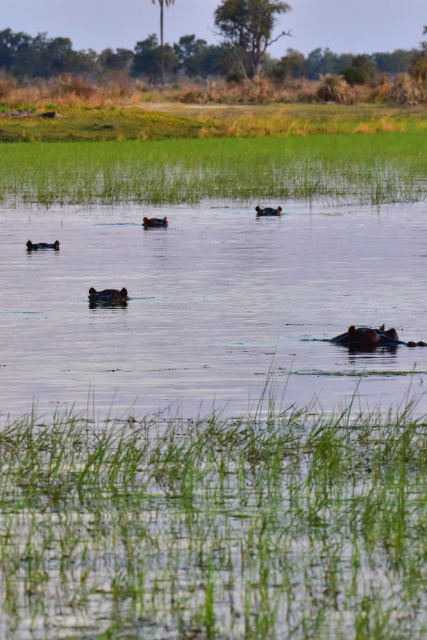
We also had our first Hippo Happy Hour! Afternoon game drives in the camps include a stop for sundowners (morning game drives include a stop for coffee and biscuits). The first evening we stopped at a pond where there were at least a dozen hippos. Right there, next to the truck.
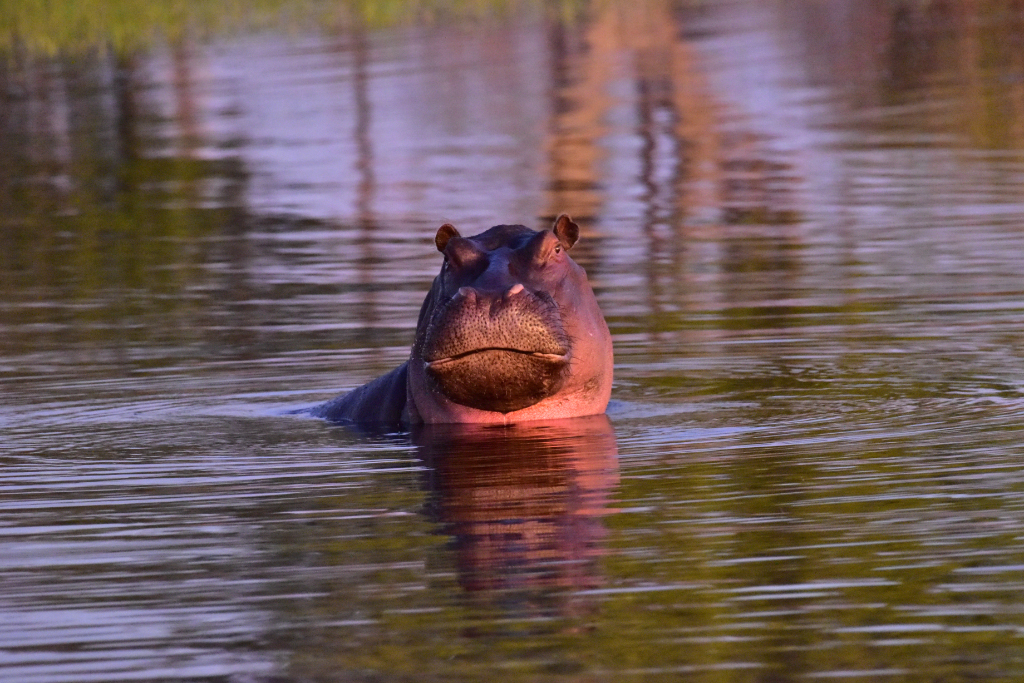
One hippo got curious and started coming out of the water towards us, and he got about half out of the water then made a huge noise and flipped around and went back in. What we have learned is that the most human deaths in the Okavango Delta are from encounters with Hippos. But they only feel safe in the water, so if we’re on the shore we’re safe. At least that’s what they tell us!
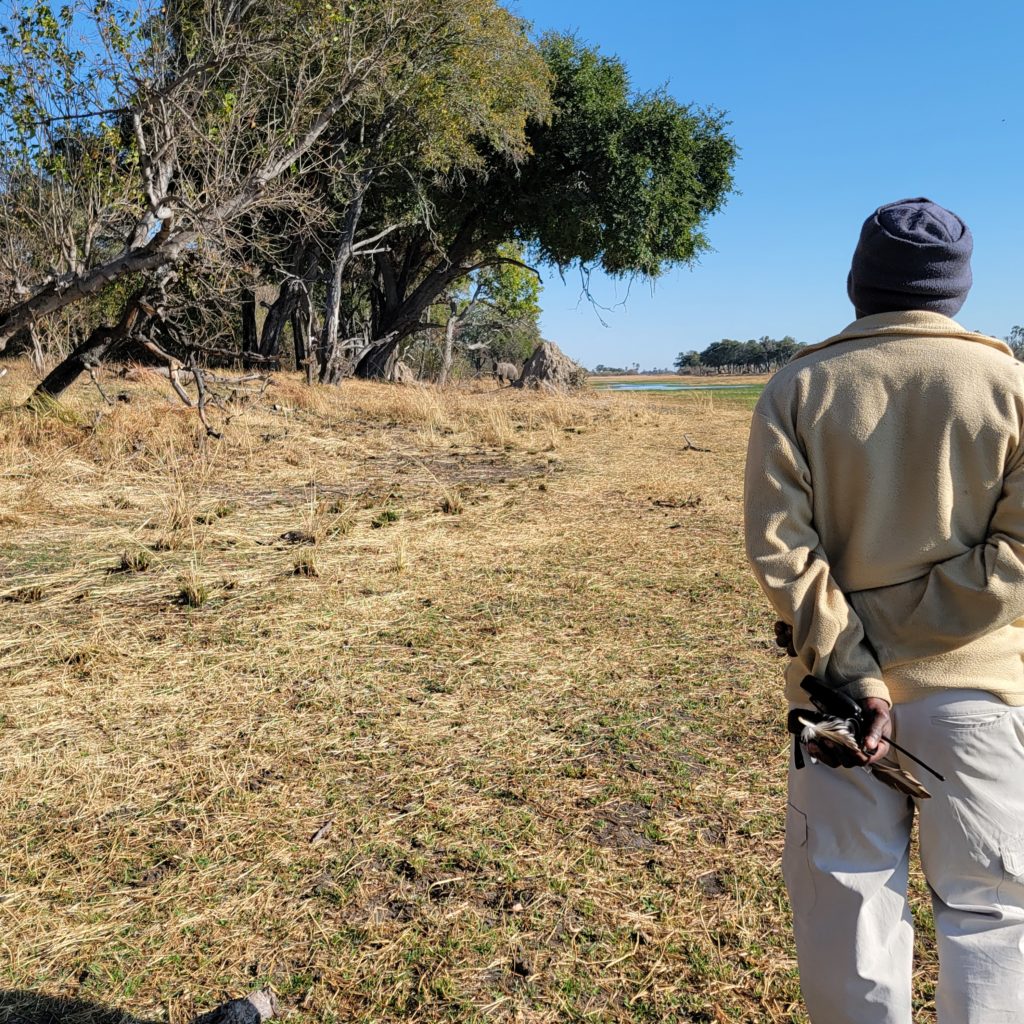
We did a Safari Walk on this trip, which also was intense for me. The senior guide is in the front and we walk single file. He’s very busy keeping track of all the wildlife moving around us, including herds of elephants and water buffalo. Along the way he stops to teach us about everything local. These guides have grown up in the Delta and have a deep knowledge of the local plants and animals. Thankfully he did have a VHF in hand if he needed to call for help.
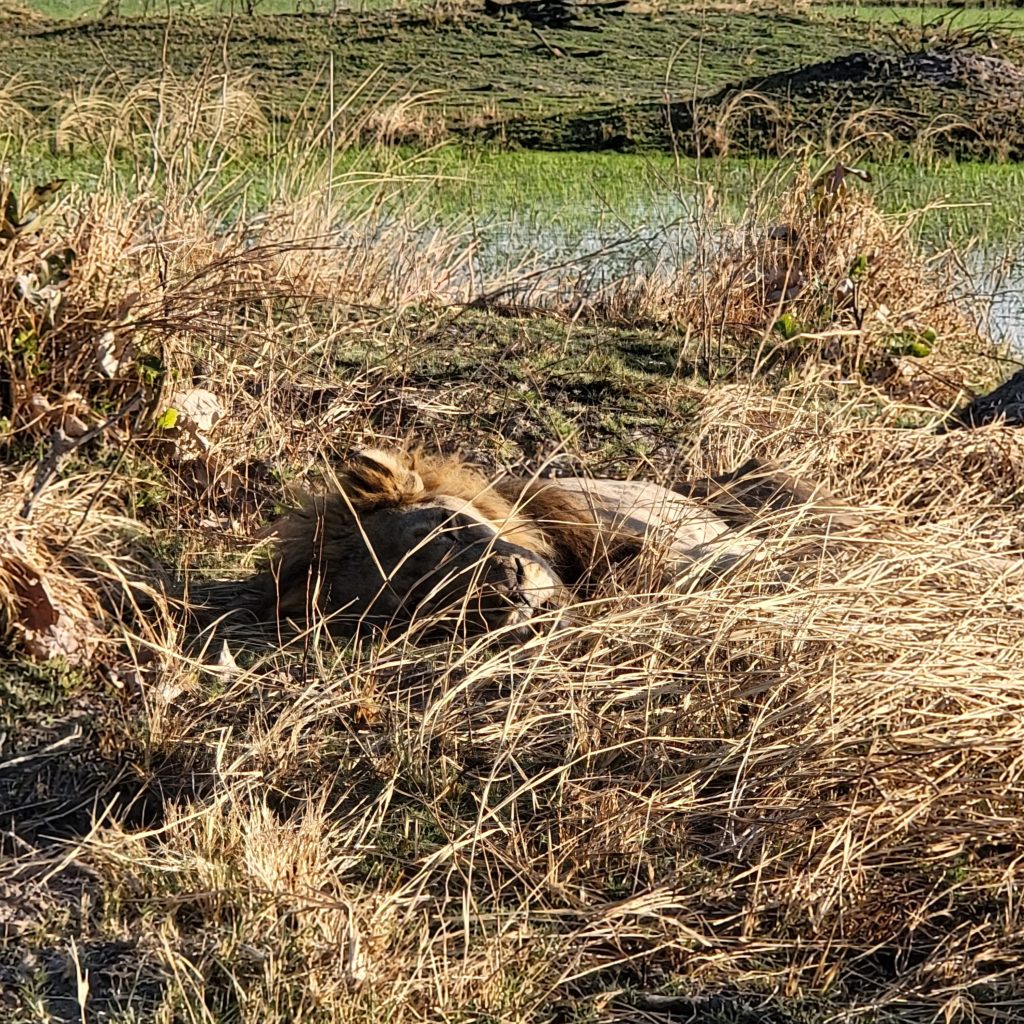
The saddest story from the Delta was our only lion encounter. We were brought to a sighting of a male lion, but it was absolutely heart breaking. He was definitely in his last days. He was laying in the grass, breathing heavily and obviously massively emaciated. When he rolled over we saw a porcupine quill hanging from his chest. There was nothing good about seeing what nature does to an aging male lion, who surely once was the patriarch of a pride of hunters.

Our guide Action said that surely he was in his last days, and that the younger males had abandoned him. That’s why he was desperate and tried to kill a porcupine that he knew was going to fight back. But when we got back to camp and had dinner with a different guide, he assured us that the female lionesses would hunt and provide him food. He said he had returned to the sighting spot later in the day and the lion had moved on. Later that night when we were back in our tent we heard a lion calling from across the river. I’m hoping that was him telling the lioness hunters where he was waiting for some food.
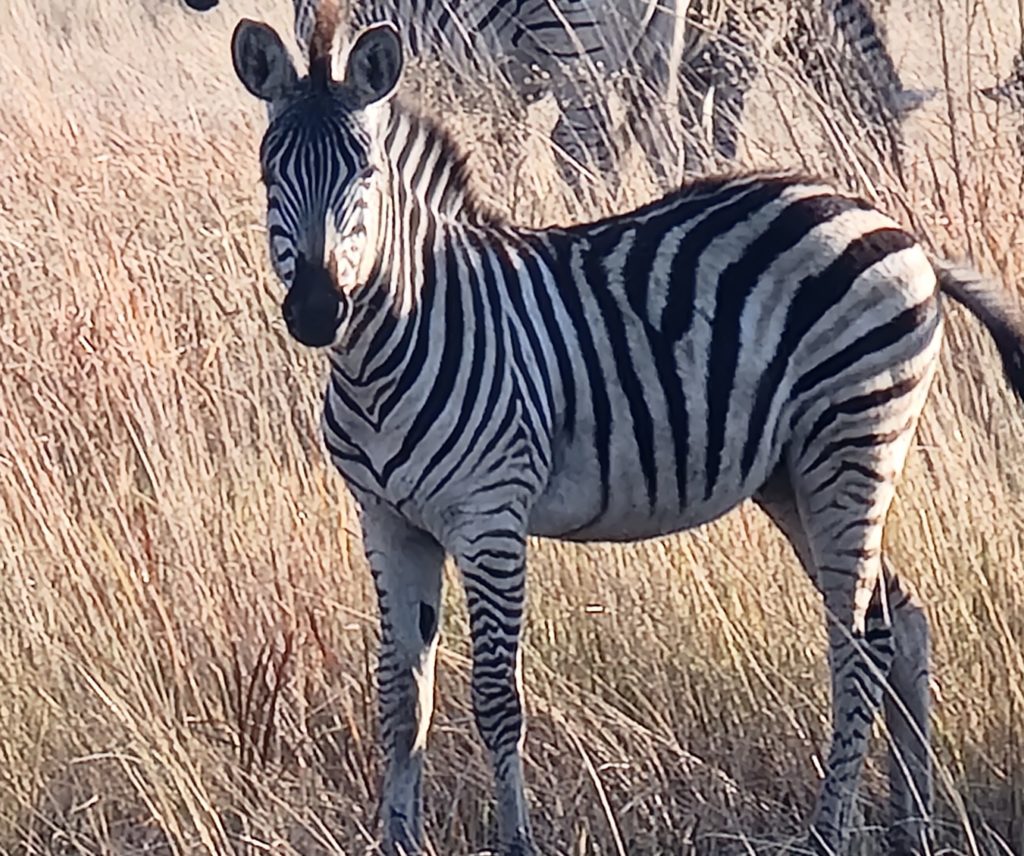
We saw and learned so many amazing things at Moremi Crossing. It was a beautiful camp, and like all things so far on this trip, absolutely exceeded expectations.
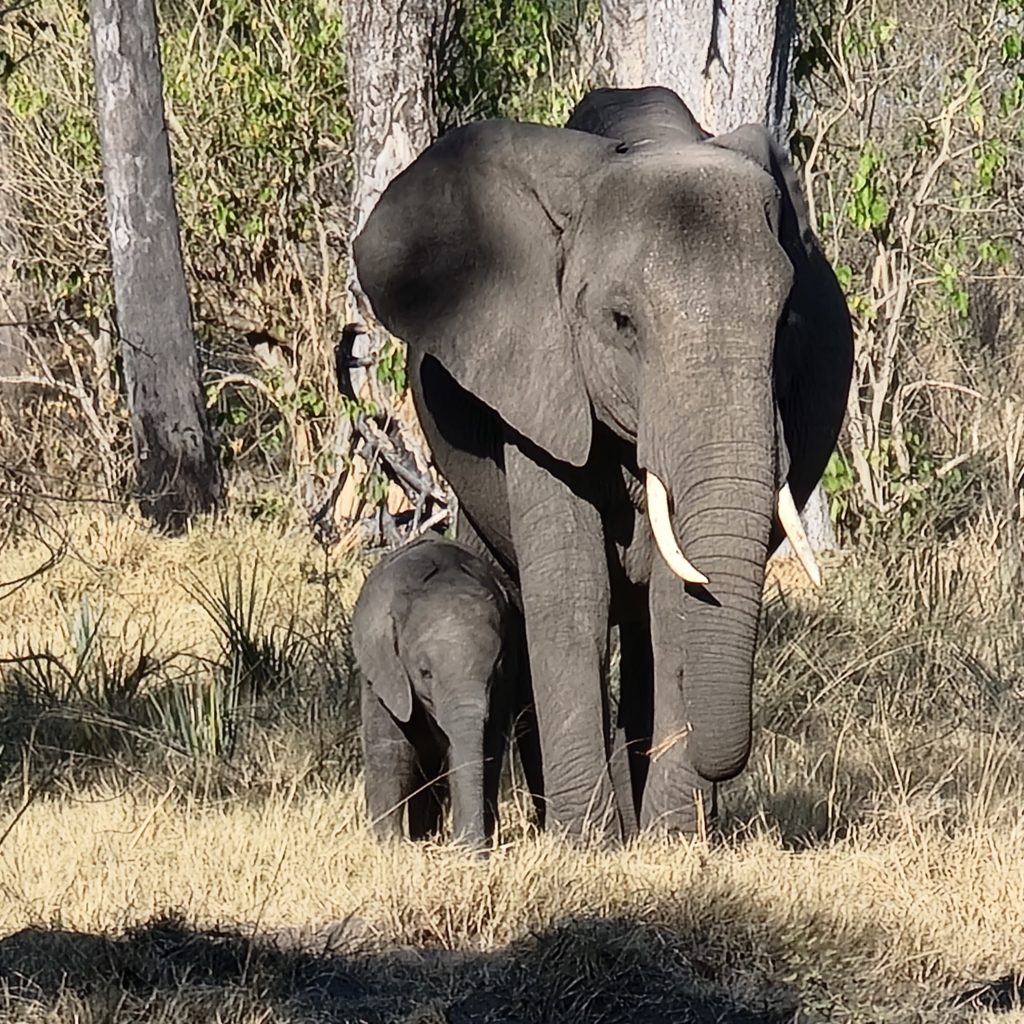
Unedited Pix for Moremi Crossing camp and game drives are here: